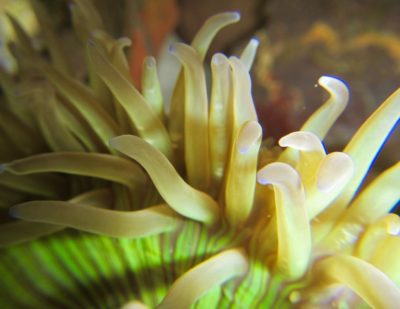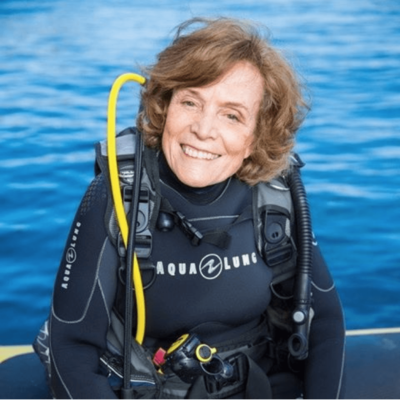
For much of human history, the phenomenal life beneath the ocean’s surface was a distant, unattainable world. Thanks to many curious and courageous individuals, however, marine science has grown into a vast and exciting field. While the true “list” of humans who have contributed to our shared understanding of the sea is inexhaustibly large, this post celebrates three who stand out amongst the masses as exceptional pioneers: Rachel Carson, Eugenie Clark, and Sylvia Earle.
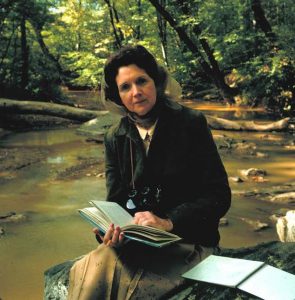
Rachel Carson is perhaps best know for Silent Spring, her most celebrated and influential literary work. Her work as a marine scientist, however, extends far beyond one impressive book. Carson studied population dynamics of marine birds, tidal patterns, fish development, and more. Carson had a particular strength that cemented her role in the history of science: she could communicate scientific discoveries and urgencies to the non-scientific public. Carson wrote extensively about environmental ethics and the human-ocean relationship, bringing issues such as the lethality of pollution, the threat of a warming ocean, declining populations of marine life, and many others to the attention of the public. More impressively, she did all of this in spite of harsh denial and criticisms from a canon of government officials, scientists, and elitists whose successes, reputations, and egos were built upon the harmful ocean practices that Carson strove to dismantle.
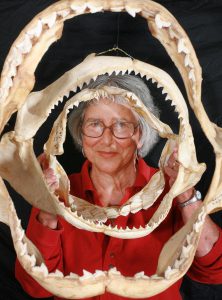 Eugenie Clark began her career in marine biology in a post World War II America, when woman, particularly Japanese-American women, were an absolute minority within science. She nevertheless pursued her passions and over her lifetime, earned the fabulous and illustrious title of “Shark Lady” for her numerous discoveries on shark species and her efforts in extinguishing the unprecedented public fear associated with these misunderstood predators. Clark was also a champion of ocean advocacy and founded the Mote Marine Laboratory, which is dedicated to protecting shark species, establishing sustainable fisheries, conserving coral reef ecosystems, and much more.
Eugenie Clark began her career in marine biology in a post World War II America, when woman, particularly Japanese-American women, were an absolute minority within science. She nevertheless pursued her passions and over her lifetime, earned the fabulous and illustrious title of “Shark Lady” for her numerous discoveries on shark species and her efforts in extinguishing the unprecedented public fear associated with these misunderstood predators. Clark was also a champion of ocean advocacy and founded the Mote Marine Laboratory, which is dedicated to protecting shark species, establishing sustainable fisheries, conserving coral reef ecosystems, and much more.
Almost no conversation about the history of underwater exploration can be had without the mention of Sylvia Earle. Earle has had a massive influence in the development of modern SCUBA diving and underwater submersibles. She once held the world record for the deepest untethered dive and was the first to lead an all-female crew in a prolonged underwater living experiment. Earle later became the first woman to serve as chief scientist for the National Oceanic and Atmospheric Administration and the first woman to serve as an explorer in residence for the National Geographic Society. Amongst a life of groundbreaking firsts, Earle dedicated much of her time and energy to promoting oceanic conservation and stewardship.
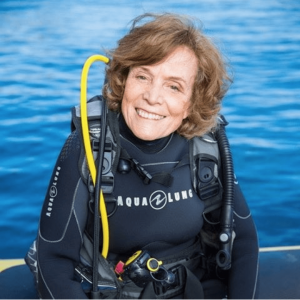 While Rachel Carson, Eugenie Clark, and Sylvia Earle are only a fraction of a fraction of the many who have dedicated their lives to the ocean, the legacies that these three scientists have left, the young people that they’ve inspired, and the hearts that they’ve changed will leave a lasting impact of immeasurable power. Perhaps you, dear reader, will find your name amongst them in the years to come, so long as you keep exploring our oceans.
While Rachel Carson, Eugenie Clark, and Sylvia Earle are only a fraction of a fraction of the many who have dedicated their lives to the ocean, the legacies that these three scientists have left, the young people that they’ve inspired, and the hearts that they’ve changed will leave a lasting impact of immeasurable power. Perhaps you, dear reader, will find your name amongst them in the years to come, so long as you keep exploring our oceans.
Sources:

